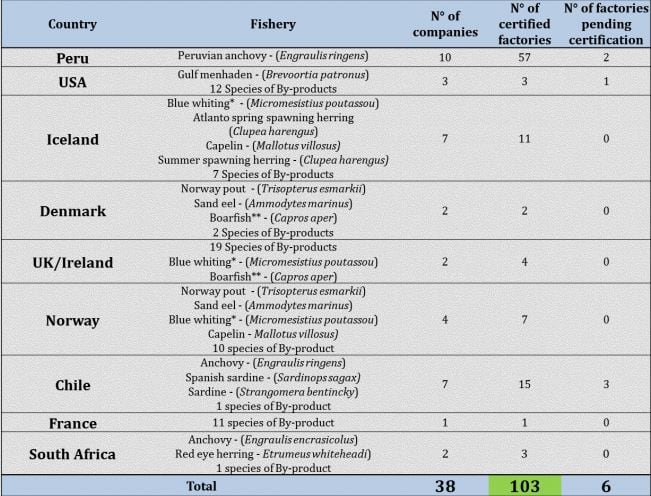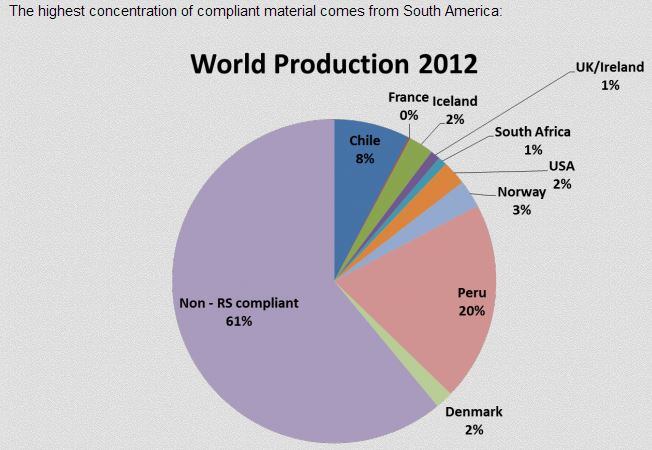“The health of fisheries supplying marine proteins to the aquaculture, nutraceutical and other industries is extremely important,” said Morrisons’ fisheries and aquaculture manager, Huw Thomas.
“Independent and credible certification of fisheries and supply chains to these industries is a requirement within Morrisons Seafood Sourcing Policy, which is why we support the adoption of the IFFO RS standard within our supply chain.”
The retailer support for the factory-not-fishery focused ‘Responsible Sourcing’ programme launched by the International Fishmeal and Fish Oil Organization (IFFO) comes as people demand to know more about the marine-sourced foods they eat – including omega-3 food supplements – but the issue has entered tricky semantic waters as debate rages about the difference between ‘sustainable’ and ‘responsible’.

You say ‘sustainable’, I say ‘responsible raw material procurement’…
There is no formal definition of what ‘sustainable’ is in the European Union, which has led to some retailers being criticised and even rooftop-protested by the likes of Greenpeace over their use of the term.
Marine Stewardship Council (MSC) fishery certification is generally regarded as the high-bar in the area, and MSC promotes its certifications as being sustainable, but not all certifications come with MSC backing, including the IFFO scheme.
“We are very careful not to use ‘sustainable’ because there is not enough clarity there at the moment,” IFFO technical director, Dr Andrew Jackson, told us this morning. “We say our factories engage in responsible raw material procurement.”
“It is semantic yes, but that is because there is so much argument over the use of the word 'sustainability'. We are very careful about using the ‘S’ word.”
The IFFO mark is based on a third party certification of the processing factory and can include an assessment of the fishery if an MSC or other assessment of it has not been conducted, relayed Dr Jackson.
Some factories were rejected at the first time of asking or had their certification revoked due to traceability issues or even economically motivated adulteration as happened in Denmark this year.
He emphasised the mark was designed for B2B use, and was not intended to be used as a product differentiator at consumer level as was the MSC certification mark.
Sainsburys’ aquaculture and fisheries manager, Ally Dingwall said: ”Only ingredients from well-managed sources can be included in feeds and that is why we have recognised and supported the development of the [IFFO standard] which allows fish meal and fish oil producers to demonstrate their responsible sourcing credentials through independent audits.”

In 2012 there were about 5 million tonnes of fishmeal and 1m tonnes of fish oil produced with the largest fisheries being Peruvian anchovy, Alaskan Pollock, Blue Whiting in the UK, Iceland and Norway and US Gulf menhaden.
Fish oil is a major source of omega-3 forms like DHA (docosahexaenoic acid) and EPA (eicosapentaenoic acid) which have been backed in the scientific literature and by regulators to benefit brain, heart and eye health.
Other certification schemes include SCS Global Services' Fishery Improvement Projects (FIPs).
More about the IFFO RS scheme can be found here.
